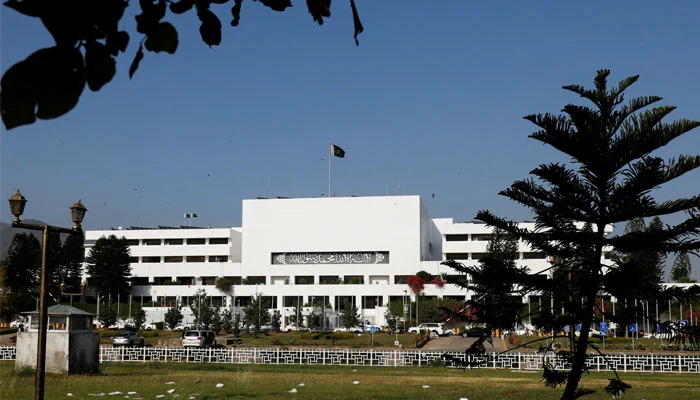LAHORE: Pakistani politics is known for the volatility it goes through and strangely only one out of nine prime ministers from 1999-2022 has been able to return to the National Assembly following fresh elections, reported The News on Thursday.
With the exception of one, all nine departing prime ministers have been unable to return to the lower house of Parliament due to various reasons such as election defeat, disqualification, or other issues.
The former prime ministers Nawaz Sharif (twice), Raja Pervaiz Ashraf, Zafar Ullah Jamali, Shujaat Hussein, Shaukat Aziz, and Syed Yusuf Raza Gilani were unable to be eligible for the National Assembly in 2022.
Imran Khan, the founder of Pakistan Tehreek-e-Insaf (PTI), has now also been added to the list after his papers were turned down since he is no longer eligible.
Shahid Khaqan Abbasi is the only former prime minister among them to have taken an oath of office and been allowed to return to the National Assembly in the very next session. But his comeback was probably brought about by the NA seat he managed to secure in the Lahore by-election, following his losses to Islamabad and Murree in the 2018 elections.
After losing the 2018 general elections, Abbasi was on the verge of being expelled from the NA. However, he was lucky enough to win the NA-124 by-election in Lahore, which allowed him to rejoin the NA.
Nine out of nine previous prime ministers from 1999 to 2022 would not have been able to run in the NA that followed the one that elected them if he had lost the by-elections.
Since Shehbaz Sharif, the most recent prime minister, is running for two National Assembly seats, it is unclear if the percentage would rise to one out of ten.
Gen (retd) Pervez Musharraf, the army head at the time, staged a coup on October 12, 1999, to oust then-prime minister Nawaz Sharif.
Nawaz had departed Pakistan by 2000, and thus was not a member of the National Assembly that was elected in October 2002.
PM positions were held by Shaukat Aziz, Chaudhry Shujaat Hussain, and Zafar Ullah Jamali from 2002 to 2007. All of them, meanwhile, were unable to win reelection to the National Assembly following the 2008 elections.
After serving as prime minister from 2008 to 2012, Syed Yusuf Raza Gilani of the PPP was disqualified by the Supreme Court’s decision, making it impossible for him to run in the upcoming elections and eliminating him from the NA.
After Raja Pervaiz Ashraf took over as PM in place of Gilani, he was unable to join the next NA that was chosen for the term 2013–2018, just like his predecessor did. Ashraf lost the 2013 general elections.
After being found guilty in 2017, Nawaz Sharif, the PML-N supermo who took office in 2013, had to face disqualification through the legal system.
He was not eligible to run in the following general election or join the National Assembly, which met from 2018 to 2013.
On the other hand, from 1988 to 1999, the customs were distinct. In 1988, Benazir Bhutto was appointed prime minister.
Nawaz became prime minister in the 1990 National Assembly, although Benazir Bhutto was a member of the assembly and led the opposition. In 1993, Benazir Bhutto was elected as Prime Minister, and Nawaz Sharif led the Opposition and was a member of the National Assembly. Benazir Bhutto remained a member of the National Assembly (NA) from which Nawaz took an oath of office again, even though the PPP only had 17 seats in that assembly.






